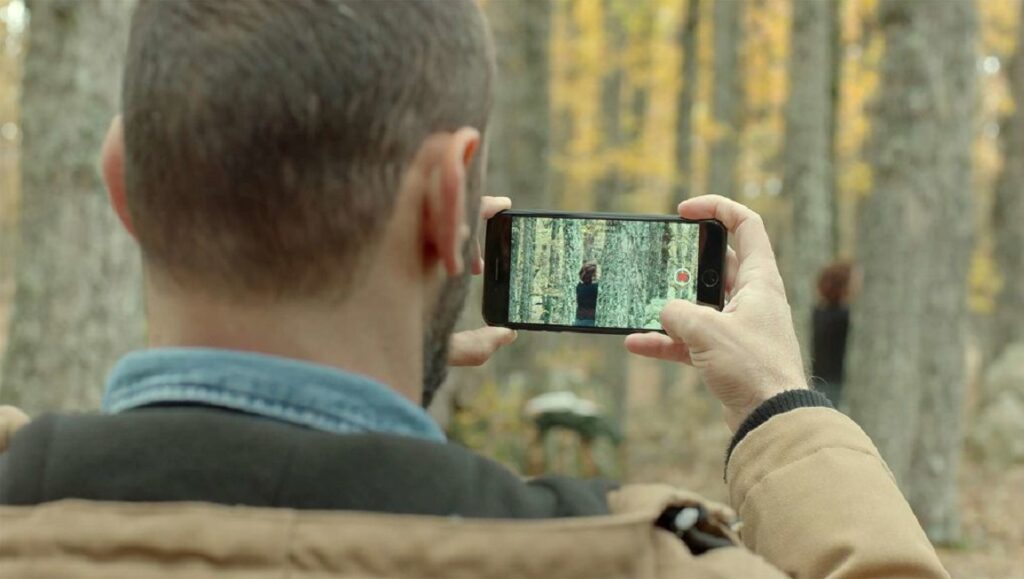For many depressing reasons, it’s not surprising to see a film like The River in competition at Locarno in 2021: it’s helmed by an artist of some minor international recognition (Lebanese director Ghassan Salhab) and operates in broad artistic strokes, concerning itself with the collapse of the modern civilized world in tandem with the deterioration of one couple’s relationship. But “broad” is the operative word here, as nothing The River does or attempts to accomplish has an ounce of specified intent: the man and woman (awkwardly inhabited by Ali Suliman and Yumna Marwan; to claim they’re acting here is a bit of a stretch) are never once named, are never given any personal history outside of a few vague details about their past domestic life, and are never developed beyond what can be gleaned after five minutes. They begin in an outdoor cafe — again, not named; its significance is ultimately a moot point — arguing over something and using ambiguous verbal language (again, does it really matter over what?) when an unnamed foreign military presence suddenly intervenes — all off-screen and represented with cheap sound effects, with the two leads occasionally looking off into non-diegetic space to suggest more than what’s actually here — which makes the two take off into a nearby forest for no discernible reason other than there’s another hour and a half that needs filling.
So Salhab isn’t interested in the particulars of his work’s narrative, which isn’t inherently a bad approach to take with the given material, but it is one that would require him to actually settle on any given theme or develop his ideas beyond their most obvious base sentiments if any of this is to work. Instead, he keeps things obtusely nebulous: anything and everything his images could signify, can and do to some degree. The man and the woman are stand-ins for ALL of mankind, so they can’t be defined as individuals; the armed forces represent ALL civilized conflict, so no need to establish any political subtext beyond the seemingly obvious. It’s the type of film that can only function on the most amorphously allegorical of terms, one where any sort of historical context is practically a prerequisite to “get” anything that occurs on screen. But even with these tools at a viewer’s disposal, one would still get the creeping feeling after a little while that this is just Salhab and his actors dicking around in the woods whilst searching for profundity where there clearly isn’t any. His formal skills are pedestrian at best — he hangs on every dissolve for at least ten seconds, like he’s worried you might miss such a masterful technique — which could have at least been something of a saving grace. Instead, by aiming for a certain type of flimsy universality, Salhab just further evinces how little he has to say at all.
Published as part of Locarno Film Festival 2021 — Dispatch 2.


Comments are closed.